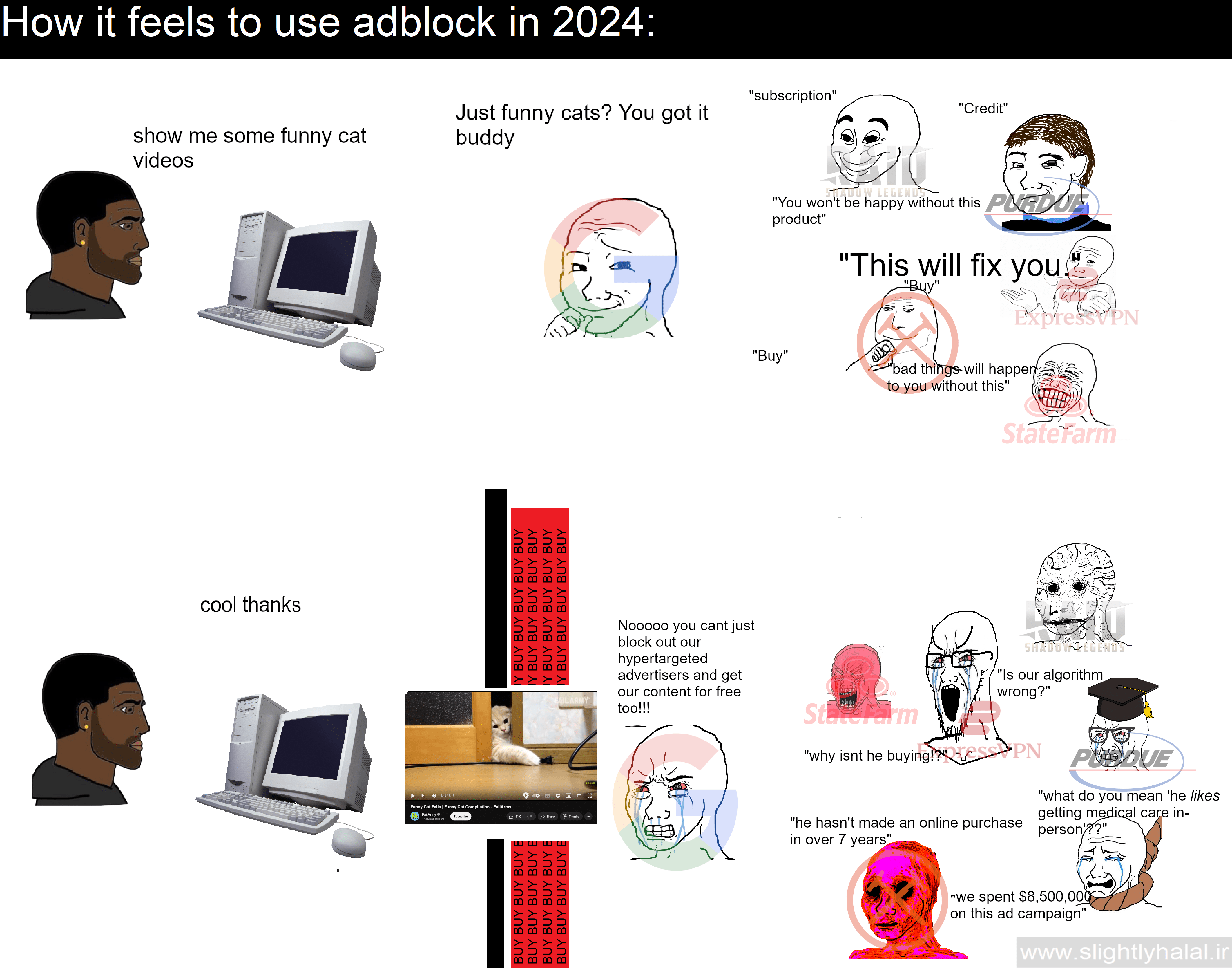this post was submitted on 08 Sep 2024
443 points (96.2% liked)
Memes
46079 readers
1313 users here now
Rules:
- Be civil and nice.
- Try not to excessively repost, as a rule of thumb, wait at least 2 months to do it if you have to.
founded 5 years ago
MODERATORS
you are viewing a single comment's thread
view the rest of the comments
view the rest of the comments

I don't understand ads. Do people actually use services and buy products because of a shitty advertisement?
You do, and don't fool yourself that you don't.
You probably don't click on ads, but they stick in your brain. You might see a half-dozen ads for Doritos, and then when you go to the store a week later, you're slightly more likely to buy Doritos.
The vast majority of advertising is just getting a brand or an idea into the back of your head so when you're looking for something in that product category, regardless of it's a VPN, a web host, a snack food, a car, or whatever, you're going to have a bias towards what you've seen in the past.
Most of my ad-blocking isn't to stop myself from buying some herbal supplement/spray tanner combo, it's to stop myself from being biased by the capitalist propaganda machine.
I am not immune from advertisements, and neither are you.
I've certainly heard this said before. Lately I've been thinking more about it as ads seem to be infecting more and more aspects of my life and so I've started to question it.
I've started to think that the whole "it makes you subconsciously think about the product when you're in the store" thing might just be made up by marketers. You know, the people whose jobs entirely depend on advertising being a good investment. That does kind of self-prove the point though, because if marketers just made it up and a bunch of people now think it's true, it follows that people will just absorb "information" if it's fed to them from the correct place.
I figured I'd see if I could find some science research on the subject. I managed to read through six studies (at least the abstracts and the methodologies) before my eyes glazed completely over and I needed to stop.
First I will say that none of them are able to draw links from advertising consumed to purchases made. The methodologies tend to focus on the immediate, how the ad makes a person feel in the moment. Generally this is done by asking people. Surveys and the like. The first one measured facial expressions and emotional responses. The PLOS one (fifth link) just asked marketing managers if their marketing was effective or not (and wow do they ever use a lot of words to say that, they turned their thesaurus up to 11). The second one is actually a bit of a side-bar in that it's specifically looking at the effectiveness of gamified advertising, but it does investigate brand memory based on different exposures. Again, just brand memory, not actual purchase behaviour.
And all that makes sense. It would be extremely difficult to build a study that manages to track every motivation for purchasing a given product, especially if some of those motivations aren't known by the purchaser. So what I'll say is that while it's likely that advertising can prod us one way or another, the wisdom that it's an effective subconscious driver of sales is not evidence based.
Do with that what you will.
I actively avoid buying anything I've seen being advertised.
You are not immune.
And also consider that even if you block out the ad the people around you probably haven't, the most effective ad is the one your friend saw.
First thought was to deny this but its somewhat true. Although i use adblocks to the extreme so i never really had the urges to buy stuff randomly or felt influenced into buying it whereas the occasional times an ad comes through i'd maybe consider getting the stuff when i'm at the shop but usually don't.
some of my normie friends refuse to use adblockers and willingly want to watch ads because "ads show them stuff that they didn't know they wanted"